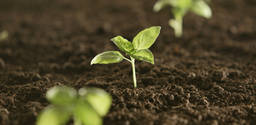Eco-friendly irrigation techniques for your garden

Eco-friendly irrigation techniques for your garden
Trying to harness the natural prevalence of rainwater in your area is one of the first and most obvious water-saving irrigation techniques that you can try.
Implement a rain garden on your property to help you save 30% more rainwater than the average garden lawn can. A rain garden is a planted depression that catches rainwater runoff from areas where it is most likely to collect, such as walkways, driveways or roofs. Rain gardens allow rainwater to be soaked into one’s garden and be reabsorbed, rather than running off into storm drains or evaporating off the tarmac.
The manner in which you provide your plants with water can also be more eco-friendly if you install drip irrigation systems or soaker hoses. Drip irrigation systems allow gradual trickles of water to enter the soil, while soaker hoses have small holes in their surface that also allow small amounts of water to escape. These systems allow your plants to have sufficient water, but prevent water loss through evaporation or runoff.
Another benefit of drip irrigation systems is that they control water dispensation through drip valves that can be strategically placed in the perfect location, which is at the base of a plant or flowerbed. This system delivers water exactly where it needs to go and makes from stronger plants as they receive the water they need at their root systems.
Rain barrels are another technique for saving and storing rainwater. Rain barrels are simple containers made of either plastic or wood. They are attached to the spouts of gutters to collect rainwater flowing off the roof of your house and can be used to collect water for nourishing your garden.
Finally, making small changes to your watering habits can go a long way to ensuring that your garden’s irrigation system is more eco-friendly. Make sure your sprinklers do not waste water on sidewalks or driveways, water as early in the day as possible to prevent water loss through evaporation, and water more thoroughly, but less often.
